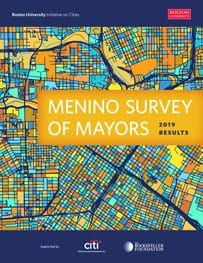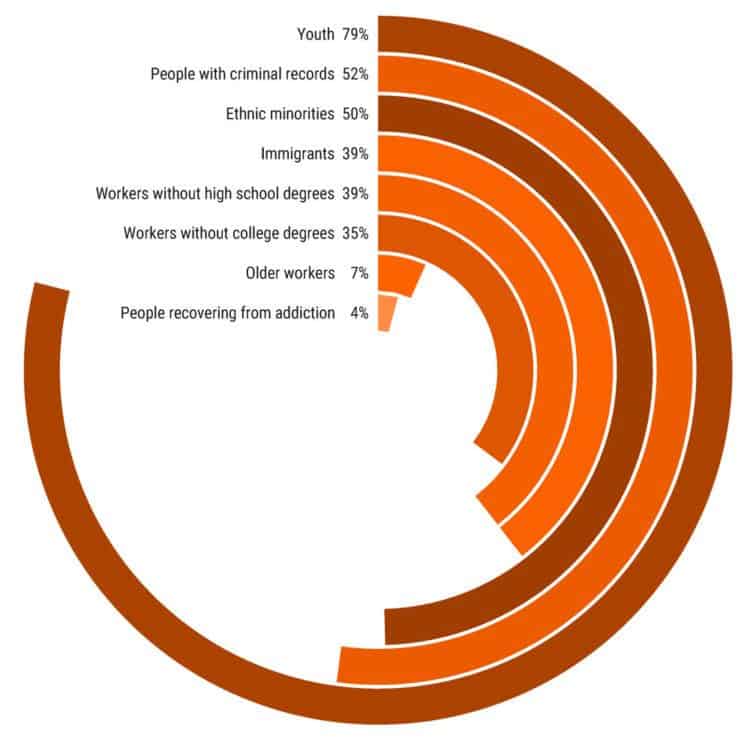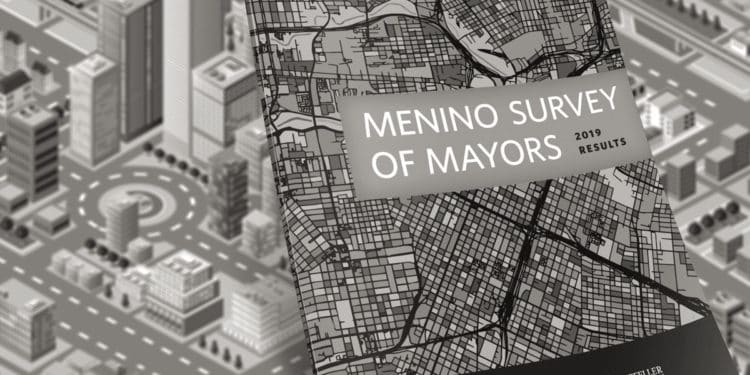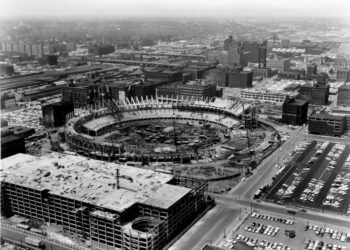In an open-ended question, 45% of mayors said infrastructure was the issue related to cities they hoped was discussed during the election, a response with so much consensus that the next top answer was housing affordability with only 15%.
Twenty-five percent of mayors cited water, wastewater, and stormwater projects, more than any other type of infrastructure project, when asked what type of “large” infrastructure project they would prioritize if they were given an unrestricted grant. This is a 40% increase since the question was last asked in 2015.
“Mayors are absolutely right that few issues matter more for our country’s future than investing in essential infrastructure – whether it’s roads and bridges, housing, mass transit, water systems, or any of the other structures that are too often taken for granted,” said Edward Skyler, executive vice president, global public affairs at Citi and former deputy mayor of New York City, in an announcement about the survey. “Neglecting the infrastructure needs of our growing cities can deepen inequality.”
Roads, transit and climate change are on most mayors’ minds

Beyond thinking about federal funding, the mayors’ thoughts about infrastructure extended into roads and mass transit, as well as bicycle and pedestrian friendliness.
Overall, more than three quarters of mayors believe their cities are “too oriented towards cars,” with over a third “strongly” agreeing with that statement despite research indicating that, in nearly all cities, transit is an energy hog compared to private vehicles. Likewise, nearly half of all mayors believe travel for bicyclists, persons with disabilities, and pedestrians is not safe in their cities, while fewer than 10% believe the same for car drivers and mass transit riders.
Nearly three quarters of mayors believe cities should make their roads more accessible to bicycles even if it means sacrificing driving lanes or parking, with just under a third “strongly” agreeing with that statement.
While mayors are concerned about the safety of road users, survey responses indicate their preferred policies are not always consistent with transportation safety best practices in speed limits, parking, and cycling.
Large majorities of mayors believe that their speed limits are set at the right levels and enforced adequately. Similarly, substantial proportions express favorable views of their cities’ current parking levels and pricing, despite the problems of over-aggressive parking minimums. Over three-quarters of mayors endorse painted bicycle lanes as safe alternatives to physically separated lanes — contrary to statistical analyses of bicycle accident data.
Mayors worry about cars contributing to climate change. Two-thirds of respondents believe vehicles are the biggest source of greenhouse gas emissions from their city, and the same percentage believe it’s important to improve their city’s electric vehicle infrastructure, even if it means less parking for non-electric vehicles.
But mayors disagree along party lines on whether cities should play a strong role in reducing the effects of climate change, even if it means sacrificing revenues and/or expending financial resources. While 92 percent of Democrats believe this (55% “strongly”), only one quarter of Republicans do. Overall, 70% of mayors agree, and, increasingly, there are worries that climate risk may be priced into municipal debt.
From workforce development to opportunity zones, a focus on the economy
Almost half of all mayors (48%) believe that high tech jobs will be substantially more common in their cities in five years than they are today. Other commonly cited growth sectors included health care/medicine (29%) and service jobs (13%).
When it comes to preparing the local workforce for those shifts in the economy, mayors are all-in on youth programs (79%) and broadly support programs for people with criminal records (52%) and ethnic minorities (50%). However, programs most likely to help existing workers transition into new careers, such as those without a college degree (39%), those without a high school diploma (35%) and older workers (7%) are less broadly supported.

The survey also asked mayors about their attitudes and expectations for opportunity zones in their cities, which were created by the 2017 Tax Cuts and Jobs Act to give tax benefits to those who invest in designated areas of need.
Nearly three-quarters of America’s mayors are happy with the opportunity zones selected in their cities, despite criticism by some that the program will ultimately benefit wealthy developers over communities in need. Six in 10 mayors believe the program will have a large and positive impact on their city’s economy, while less than a quarter say it will lead to gentrification and residential displacement.
The 2019 Menino Survey of Mayors is the only national representative survey of American mayors, surveying mayors from cities of more than 75,000 residents. In total, 119 mayors from 38 states were interviewed throughout the summer of 2019.









Beyond the spectacle, Kansas City prepares for World Cup reality